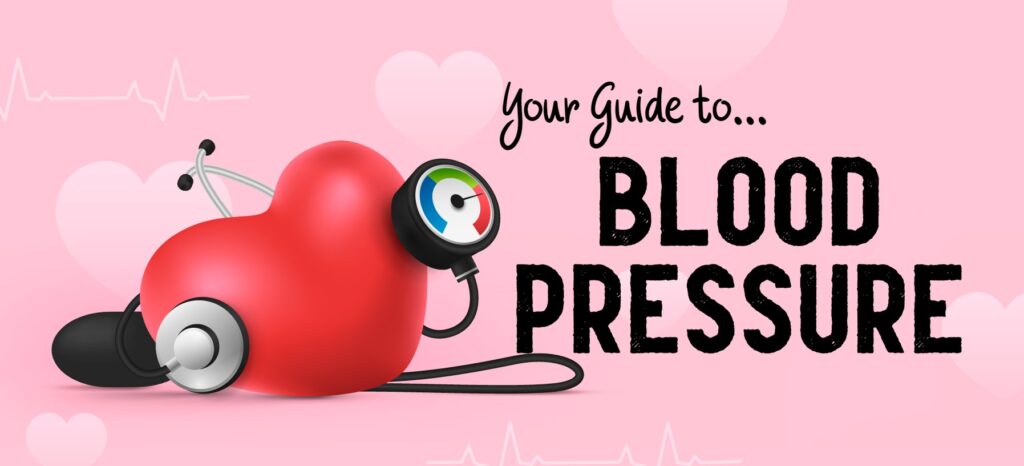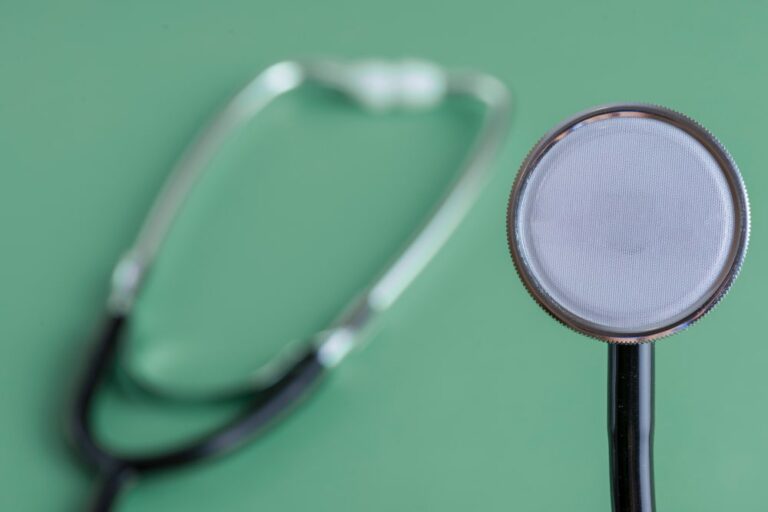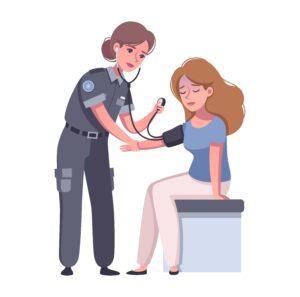
Maintaining a healthy lifestyle is essential, and understanding your blood pressure is a fundamental part of that journey. In this blog, we will delve into the intricacies of blood pressure, including the basics, normal ranges, symptoms of hypertension and hypotension, and valuable tips for a healthier you. So, let’s break it down and empower you with the knowledge you need.
The Basics of Blood Pressure
Before we dive into the details, it’s crucial to grasp the fundamental concept of blood pressure. This measurement represents the force of blood pushing against the walls of your arteries as your heart pumps it through your body. It’s typically expressed as two numbers: systolic and diastolic.
Systolic Blood Pressure (SBP): The top number, indicating the pressure in your arteries when your heart beats and pumps blood.
Diastolic Blood Pressure (DBP): The bottom number, reflecting the pressure in your arteries when your heart is at rest between beats.
Defining Normal Blood Pressure
What’s considered “normal” blood pressure? For adults, the standard reading is approximately 120/80 mmHg. However, it’s essential to recognize that normal blood pressure can vary slightly based on factors such as age, gender, and individual health.
Normal Blood Pressure Range
A typical blood pressure reading for adults is approximately 120/80 mmHg. This reading is considered the benchmark for normal blood pressure. However, it’s important to note that what’s “normal” can vary depending on factors like age, gender, and individual health. Here’s a general guideline for different blood pressure categories:
- Normal Blood Pressure: Below 120/80 mmHg.
- Elevated Blood Pressure: Between 120-129/80 mmHg.
- Hypertension (High Blood Pressure): 130/80 mmHg or higher.
- Hypotension (Low Blood Pressure): Below 90/60 mmHg.
High Blood Pressure (Hypertension)
The Silent Threat
Hypertension, commonly known as high blood pressure, is often a silent threat to your well-being. It rarely exhibits noticeable symptoms until it leads to severe health complications, including heart disease and stroke.
Recognizing High Blood Pressure Symptoms
While hypertension may not show obvious signs, some symptoms to watch for include severe headaches, fatigue, chest pain, vision problems, and shortness of breath.
Common Causes of Hypertension
Numerous factors can contribute to high blood pressure. These may include a family history of the condition, obesity, a high-sodium diet, a lack of physical activity, and chronic stress. Managing hypertension often involves lifestyle changes, such as adopting a heart-healthy diet and, in some cases, taking prescribed medications.
Causes of high blood pressure can range from a family history of the condition, obesity, high-sodium diets, lack of physical activity, and chronic stress. Managing high blood pressure often involves lifestyle changes, such as adopting the DASH (Dietary Approaches to Stop Hypertension) diet, reducing sodium intake, regular exercise, and prescribed medications.
Low Blood Pressure (Hypotension)
When Low is a Concern
Low blood pressure, or hypotension, can lead to dizziness, fainting, and in severe cases, even shock. Identifying symptoms and causes is crucial.
Symptoms and Causes of Hypotension
Symptoms of hypotension include dizziness, fainting, blurred vision, and nausea. The causes of low blood pressure can vary, from dehydration and heart problems to certain medications and anemia.
Remedies for Low Blood Pressure
If you’re dealing with low blood pressure, remedies may include increasing your salt and fluid intake, wearing compression stockings, and addressing any underlying health conditions.

Blood Pressure by Age and Gender
Blood pressure norms can differ depending on your age and gender. In general, blood pressure tends to rise with age. Consulting a healthcare provider is key to determining your ideal blood pressure range.
Preventing Blood Pressure Problems
Maintaining a healthy lifestyle is the first line of defense against blood pressure issues. Here’s how you can prevent problems:
Healthy Diet: Consider adopting the DASH (Dietary Approaches to Stop Hypertension) diet, which emphasizes reducing sodium intake, eating more fruits and vegetables, whole grains, and lean proteins.
Regular Exercise: Aim for at least 150 minutes of physical activity per week. It helps maintain a healthy weight and lower blood pressure.
Stress Management: Practice relaxation techniques such as meditation and deep breathing to reduce stress, a significant contributor to high blood pressure.
Limit Alcohol and Caffeine: Excessive consumption of alcohol and caffeine can lead to blood pressure fluctuations.
Regular Check-Ups: Visit your healthcare provider for routine blood pressure measurements and medical advice.

Monitoring Your Blood Pressure
To keep an eye on your blood pressure at home, consider investing in a blood pressure monitor (sphygmomanometer). These devices are readily available and allow you to track your blood pressure regularly.
In a nut shell...
Understanding and maintaining healthy blood pressure is essential for your overall well-being. By staying informed and making necessary lifestyle changes, you can significantly reduce the risk of high or low blood pressure and ensure a healthier, happier you. Always consult a healthcare professional for personalized guidance on blood pressure management and treatment.
Frequently Asked Questions (FAQs)
Q: What is the significance of blood pressure? Blood pressure reveals how well your circulatory system is functioning and can be an early warning sign of potential health issues. Q: How often should I check my blood pressure? Regular monitoring is essential, especially if you have risk factors or a family history of high blood pressure. Your healthcare provider can guide you on the frequency. Q: Can stress affect my blood pressure? Absolutely. Stress is a significant contributor to high blood pressure. Reducing stress can lead to a more harmonious rhythm. Q: Are there natural remedies for hypertension? Diet and exercise are two powerful natural remedies. Following the DASH diet and getting regular exercise can significantly lower high blood pressure. Q: What complications can arise from untreated hypertension? Untreated hypertension can lead to serious complications, including heart disease, stroke, kidney problems, and more. It’s like allowing a minor leak to flood your entire house. |
Remember, your health is a symphony, and blood pressure is just one of its essential instruments. Take charge of it, and your life’s melody will be in perfect harmony. Share this knowledge with your friends and family to keep the symphony of their health playing smoothly.
